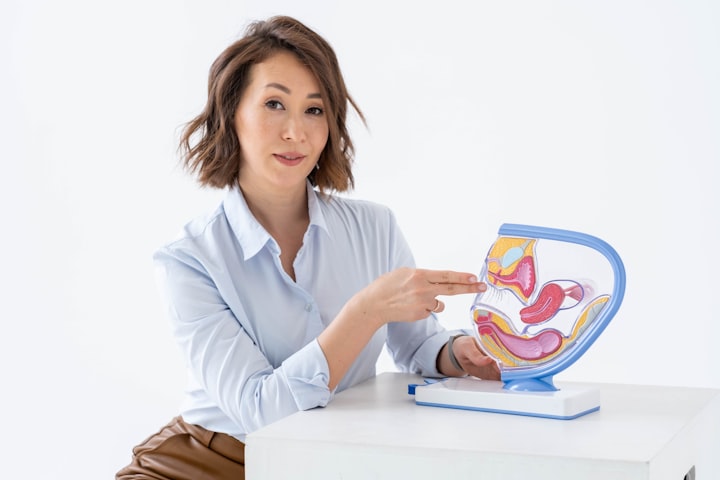Why We Need More Dietitians in Gynecology
An area of specialty you probably didn't think about...
It seems like an odd pairing... dietitians working in gynecology. I mean, dietitians don't perform pelvic exams or ultrasounds, we don't prescribe medications like birth control, we don't order lab work to monitor fertility status. We hardly receive any education in our degrees and practical training in gynecology, to be quite honest.
So why would adding more dietitians to the area actually be useful? Well, I'm so glad you asked.
I come into this as a dietitian who primarily focuses on reproductive medicine and gynecology. A significant amount of my work is around nutrition care and counselling for those who are trying to become pregnant, those with pelvic pain conditions like endometriosis and interstitial cystitis, and folks looking for nutrition support as they go through puberty and menopause. And a significant amount of my knowledge in this area has come from post-graduate sources, including workshops from prominent organizations in gynecology and a graduate certificate in sexual health (that I'm in my last semester for as I write this). I struggle to find dietitians in other provinces to refer to, because there are not many others who have this area of focus or who feel trained enough to work in this area.
There's a few trends I've noticed in practice, and feel immensely that more dietitians could support if they were encouraged to seek out training or were provided with more when they're in their undergraduate degree.
1. Gynecology and gastroenterology have a ton of overlap. I use the analogy of the vacuum-sealed chicken kebab in practice - the human body is packed pretty tightly with lots of stuff, so everything is touching everything. When we're talking about the pelvis, this means that the uterus is touching the digestive tract and is also touching the bladder. If there are issues or pain with surrounding tissues, this can impact the functioning and well-being of the reproductive system. Studies have demonstrated that digestive pain can contribute to overall pelvic pain for those with endometriosis - wouldn't it make sense that this exists for those even without endometriosis? Dietitians have tons of training and knowledge on managing digestive symptoms like constipation, bloating and more, and this is an incredible tool to have for someone wanting to complement their current medical care, or pursue a different avenue.
2. Preparing for pregnancy is more than folic acid. I will admit that I did receive some education on prenatal and pregnancy nutrition. However, there were a ton of gaps that I see more and more now as a practitioner. There is so much focus on folic acid and avoiding "excessive" weight gain, that dietitians don't receive nearly enough education on screening for eating disorders in the prenatal population, or how "designer prenatal vitamins" might not actually meet their requirements (or provide excesses of others including herbal products). With better training and better inclusion in gynecology and reproductive medicine, patients and families can better prepare for pregnancy with evidence-based support. And doctors won't have to bend over backwards to recommend prenatal vitamins with ever-changing research and 5 minutes to see the patient (this is a separate issue for a separate time).
3. The risk of malnutrition in some gynecological conditions is huge. Diet culture has hijacked a significant portion of reproductive medicine - the focus on weight loss for PCOS, barriers to accessing IVF based on BMI, and even folks trying to manage pelvic pain by cutting out tons of different "inflammatory" food groups. I love the work that doctors, nurses and other health care professionals do, but I don't think screening for malnutrition (especially in larger-bodied folks) is their strength or area of expertise. Dietitians receive training on malnutrition and screening strategies, including physical exams, to identify patients at the highest risk of malnutrition and who would benefit from support. This is also why I feel dietitians need more knowledge and training on eating disorders and menstrual health, because a person skipping periods after following a diet is a person at risk.
I can absolutely understand the hesitation that reproductive medicine and gynecology teams have in including more staff, especially if their educational background is significantly less than their own (I see you and love you, OBGYNs!). I worry that this creates a vacuum where no one is talking about "women's health issues" because of gatekeeping and stigma. I would argue that by increasing education, regulating this area of nutrition to a greater degree, and even creating a board certification (my career dream), dietitians give an incredible advantage to patient outcomes and can tackle the misinformation that exists around periods, pregnancy and more.
About the Creator
Emily the Period RD
I help people with periods navigate menstrual health education & wellness with a healthy serving of sass (and not an ounce of nutrition pseudoscience).







Comments
There are no comments for this story
Be the first to respond and start the conversation.